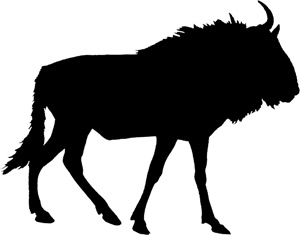Closure of Masai Mara leaves wildlife vulnerable
Robert Kiplagat - 03rd Apr 2020
 An elephant at Masai Mara National Game Reserve. [File, Standard]
An elephant at Masai Mara National Game Reserve. [File, Standard]
A wildlife conservationist in the world-famous Masai Mara Game Reserve has raised alarm over possible rise in poaching activities at the park.
The government closed the park a fortnight ago over the Covid-19 pandemic.
As a result of the closure, tens of leisure lodges and camps within the park remain deserted as hundreds of workers were sent home due to low business.
According to Mara-Serengeti Ecosystem Coordinator Nicholas Murero, cases of human-wildlife conflict and poaching might increase due to decrease in the number of tourists.
Mr Murero asked authorities in Kenya and Tanzania to be on higher alert since poachers might take advantage of the dawn-to-dusk curfew imposed by the Kenyan government to hunt wildlife for meat and trophies.
“The Mara is now closed and hotels deserted. Wildlife are now roaming freely in the community due to the tall grass in the protected area. This is a recipe for human-wildlife conflicts as well as poaching,” he said.
The conservationist, who is also Narok Wildlife Forum chairperson, asked the Kenya Wildlife Service (KWS) county rangers to partner with local wildlife conservancies to curb poaching.
Protected part
Recently, area Governor Samuel Tunai announced closure of Mara Triangle - the protected part of the game reserve - after a hotel worker came in contact with a relative who tested positive for coronavirus.
Mr Tunai noted the county security will continue guarding the wildlife in the park during the closure period.
“Our wildlife at the park are safe. The county rangers and KWS will continue to protect our wildlife from poachers who think they can take advantage of the current situation to poach,” assured Tunai.
An anonymous international undercover agent on poaching has also raised concern that there might be a huge attack on wildlife in East Africa as parks remain closed.
“I am working with wildlife conservation operations in Sweden; currently we have been doing undercover activities in Kenya and have unearthed reports poachers might be targeting Mara, Samburu and Marsabit,” the undercover conservationist told The Standard.
Poachers usually hunt elephants for their tusks and small browsers for game meat.
The Masai Mara Game Reserve is the home to the Big Five — lion, giraffe, leopard, buffalo and elephant — and numerous birds as well as other species of small wildlife.


